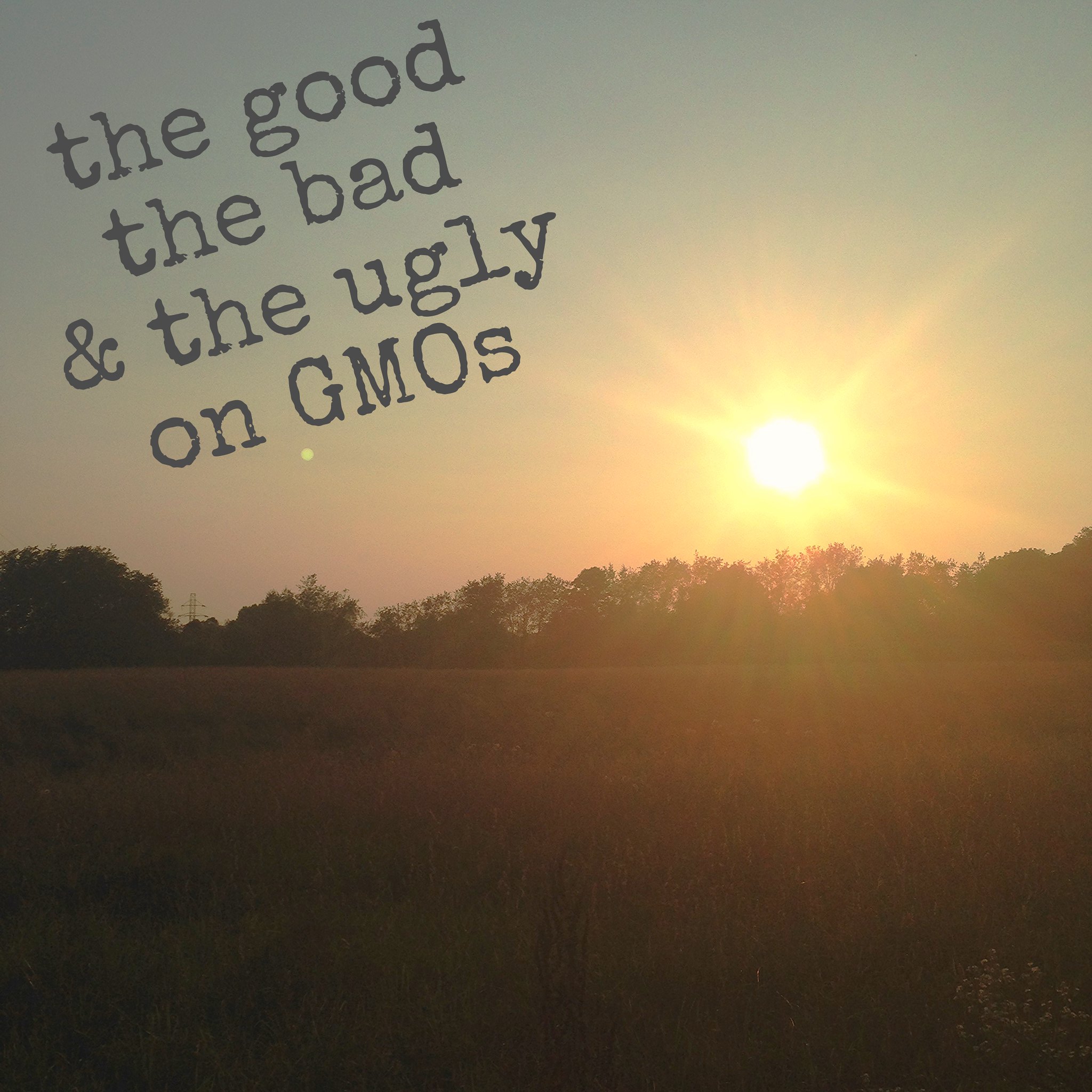
GMOs (or genetically modified organisms) have been in the new a lot over the past five years or so. In the last month, fast food restaurants like Taco Bell and Panera have announced they are removing GMOs and other artificial ingredients from their foods. Food Babe, a pretty controversial food blogger, also preaches the horrors of consuming GMOs. All are being met with some opposition from the science community saying that we shouldn't be afraid of scientific advancements in the food industry. All of this can be pretty confusing.
I take a pretty opinionated stance right in the middle ground.
So here are my pros and cons to GMOs...
The good...
Genetic modification actually occurs in nature. If a bee pollinates a spicy habanero plant and then to a sweet tomato plant, that tomato will have a bit of a kick to it because of cross-pollination. As a gardener, that is how we get so many different varieties of plants to choose from. It is plant evolution. The seeds from the most delicious cross-pollinated fruits have been saved over the years and are now our heirloom varieties. My favorite tomato, purple cherokee, did not exist 100 years ago. Instead, it is a descendant of the original, Mexican tomato that grew like a wild flower.
There are so many that go hungry every day because they either do not have access to food or cannot afford it. When scientist find varieties that are naturally resistant to specific problems, like blight resistance or drought tolerance, and then cross-pollinating those in a lab with another variety that may be known for high yields results in a plant that provides a lot of food and doesn't need as much water or chemicals. More food using less resources sounds like a win in my book! Take that extra food and cost savings and distribute it to those who are hungry and that "GMO" solves (or gets closer to solving) world hunger.
The bad...
Unfortunately, the Big Ag companies that are creating most of the GMOs aren't doing it to feed the world, they are doing it for profit. Companies like Monsanto and Bayer create seeds that are dependent on their chemicals. Or... the chemicals are "baked" right into the seed. Now think about a tiny seed injected with insecticides, fungicides, and fertilizers that becomes hardwired in the plant and therefore the food it produces. There have been too many reports of bees pollinating these chemically charged plants and dying on the spot. Now imagine what it could do to you (or to the cows and chickens that eat that same grain that end up on your grill).
Like I mentioned in my first point, some of these modifications are the natural process of plant evolution. However, the modifications Big Ag have been working on are getting patented. That means even if you're not using Monsanto seeds, pollinators will still travel between crops. This results in the patented GMO DNA in your non-GMO plants. Because of patent laws, this means companies like Monsanto are able to sue farmers for stealing their genetically modified intellectual property and prevent the farmer from being non-GMO certified.
The ugly...
Now that you know not all GMOs are created equal, you still have your own consumer decision to make. Do you play it safe and go non-GMO whenever it is available? Do you support science's right to patent plant DNA knowing that some of them are trying to solve for world hunger and others are trying to profit? It is a confusing choice to make and certainly not an easy one. Yum


No comments:
Post a Comment